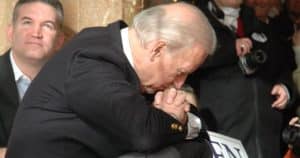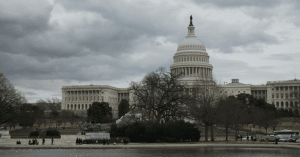Supreme Court Reverses Conviction of Jan. 6 Demonstrator, Narrows Obstruction Law
In a landmark ruling, the Supreme Court has narrowed the scope of the federal obstruction statute in a case related to the Jan. 6 Capitol unrest.
The high court's decision overturns a lower court's ruling and may affect other January 6 related prosecutions, as Fox News reports.
The Supreme Court's ruling came in the form of a 6-3 vote favoring Joseph Fischer, a defendant in a Capitol protest case. Fischer's involvement in the events of Jan. 6 led to charges under the federal statute designed to penalize those who corruptly alter or conceal documents in official proceedings.
Reversal of Lower Court's Broad Interpretation
This statute often applied broadly, was interpreted by the lower courts to cover a wide range of obstructive behaviors. However, the Supreme Court's decision focused on a narrower interpretation, requiring the government to prove actual impairment of objects' integrity or availability used in official proceedings.
The reversal sends Fischer's case back to the D.C. Circuit Court of Appeals for reassessment under the new guidelines set by the Supreme Court. Associate Justices Amy Coney Barrett, Sonia Sotomayor, and Elena Kagan were the dissenting voices in the decision. They argued for the broader interpretation that has been used in previous cases.
Impact on Future Legal Interpretations
The Justice Department, led by Attorney General Merrick Garland, expressed disappointment over the decision but acknowledged that it does not impact the majority of the cases from January 6. The DOJ must now review whether to proceed with obstruction charges based on this narrower interpretation or to drop them.
During oral arguments, Solicitor General Elizabeth Prelogar faced intense scrutiny over the application of the statute, signaling the high stakes of the case.
The DOJ's Office of Legal Counsel had previously issued an opinion in 2019 that contradicted the broad application advocated by the DOJ in this case. This opinion was noted during the court's deliberations.
Statements from Justices
Chief Justice John Roberts criticized the government's broad interpretation of the statute, suggesting it made too much of the statutory text superfluous. His opinion underscores a critical view of the expansive application of the law.
"Although the Government’s all-encompassing interpretation may be literally permissible, it defies the most plausible understanding," Roberts stated, highlighting the complexity of statutory interpretation.
Associate Justice Ketanji Brown Jackson detailed the specifics of the statute and the alleged actions of Fischer, illustrating the direct implications of the statute on Fischer's case.
Broader Legal Consequences Discussed
Associate Justice Amy Coney Barrett pointed out the challenge before the court: balancing the breadth of legal interpretation with legislative intent. "There is no getting around it: Section 1512(c)(2) is an expansive statute. Yet Congress, not this Court, weighs 'pros and cons of whether a statute should sweep broadly or narrowly,'" she commented.
Attorney General Garland later reiterated what he said was his commitment to upholding the rule of law despite the setback. "I am disappointed by today’s decision but it will not impact the vast majority of the more than 1,400 defendants charged for their illegal actions on January 6," Garland affirmed.
Implications for the Justice Department
The Supreme Court's decision has set a new precedent for how the obstruction statute is to be legally interpreted in the context of official proceedings. This will likely influence future prosecutions and legal strategy surrounding similar charges.
The ruling highlights a significant shift in judicial perspective that could reshape the legal landscape for obstruction charges, particularly in politically sensitive cases.




